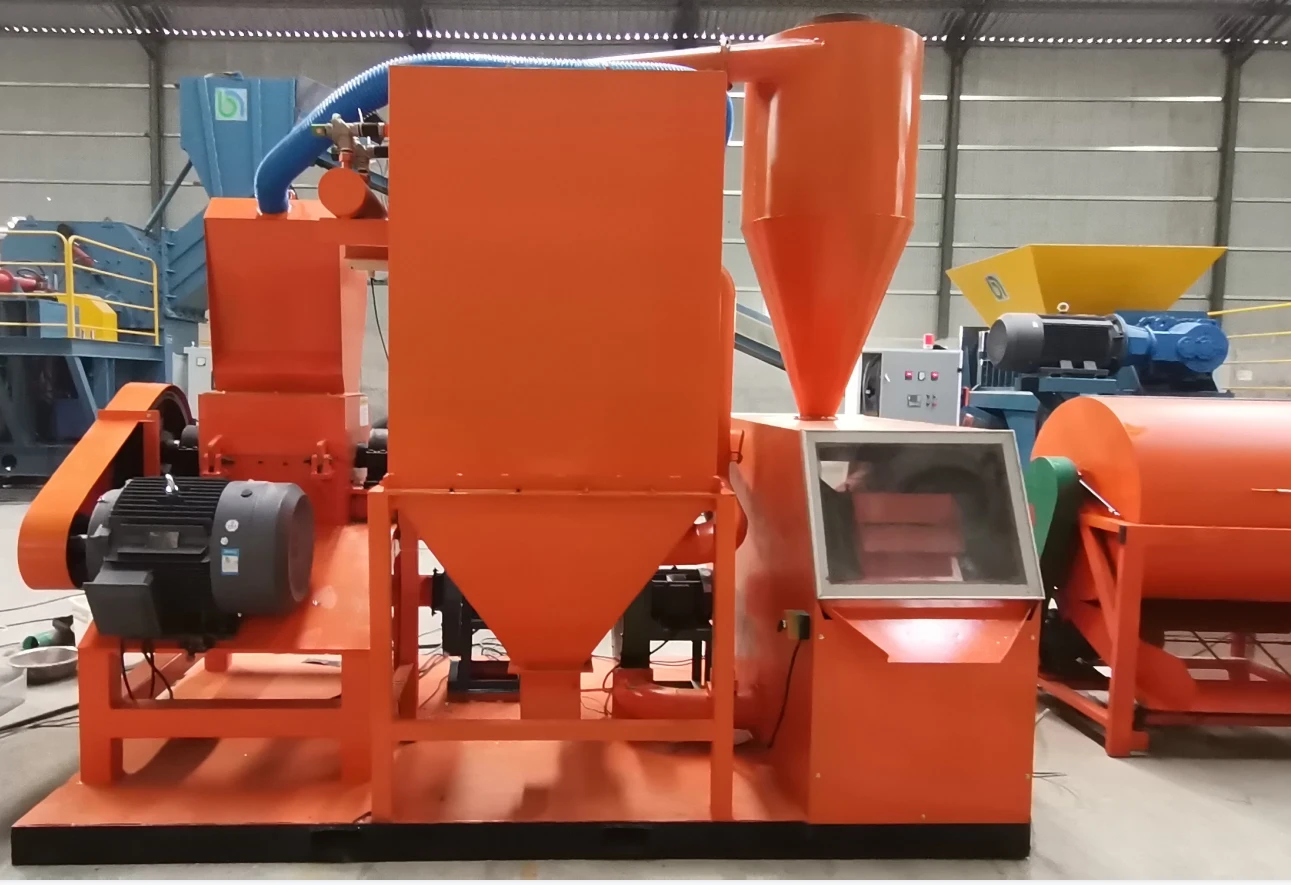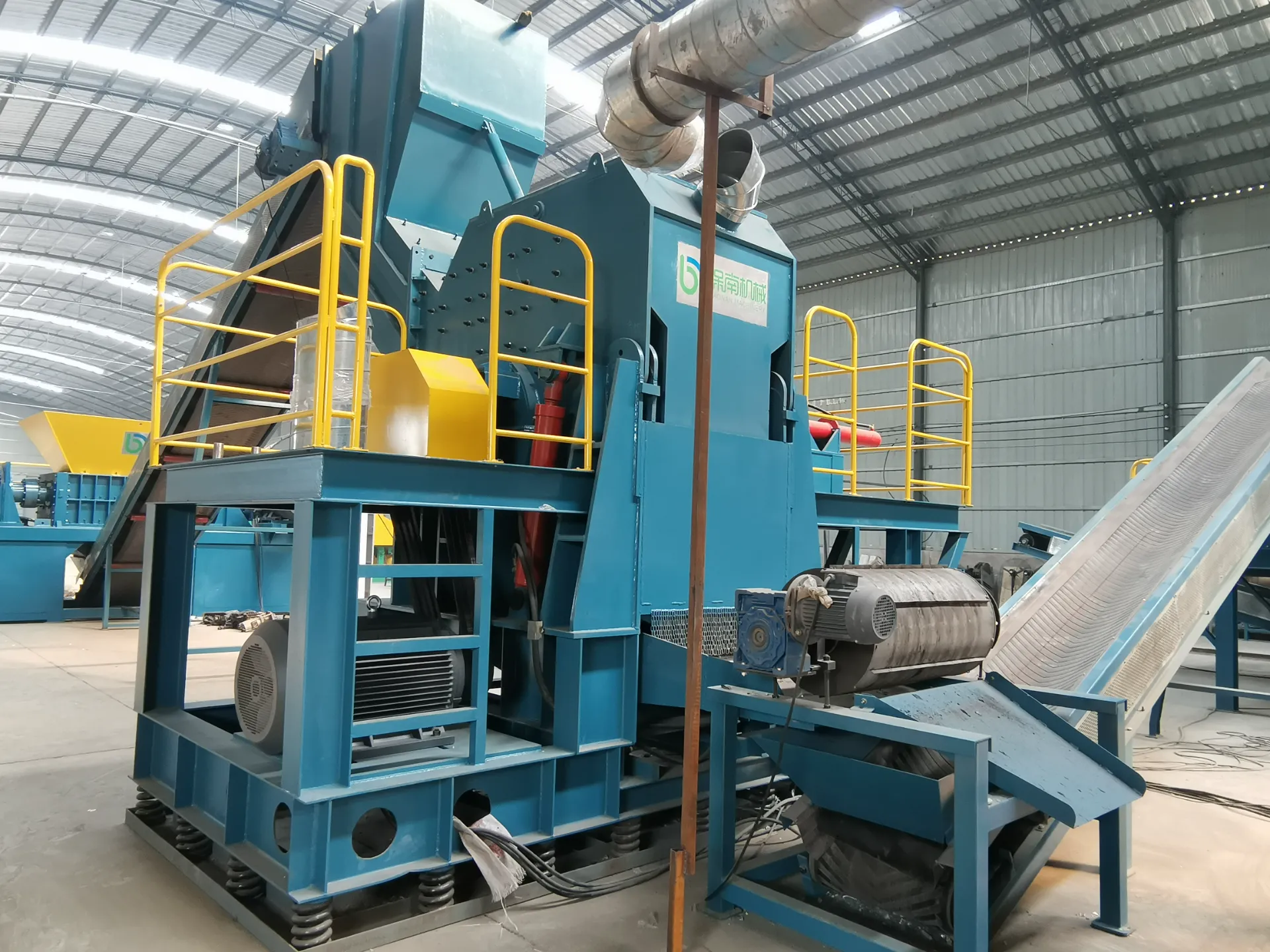The heavy-duty metal shredder machine stands as an essential component in modern metal recycling facilities. As environmental consciousness rises, the quest for effective recycling methods becomes more urgent, making these machines both pivotal and invaluable.

Crafted with industrial-grade precision, metal shredders are designed to handle various metal types with robustness and efficiency. Their primary function is to reduce large chunks of metal into smaller, more manageable pieces. This function not only aids recycling but also optimizes metal purity extraction, crucial for meeting industry standards for recycled materials.
When contemplating whether to invest in a heavy-duty metal shredder, it's important to recognize their efficiency in processing diverse materials, from aluminum sheets and copper pipes to iron castings and even stainless steel components. Shredders feature advanced cutting technologies, often including rotating or oscillating blades, each tailored for different levels of fragmentation and ensuring minimal wear over prolonged use periods.

Operational efficiency is a hallmark of top-tier metal shredders. High torque and low speed often characterize these machines, providing the necessary force to handle tough metals without compromising on precision. They're equipped with automated systems to prevent overloads and jams, which ensures uninterrupted operation — a crucial feature for high-output facilities.
For facilities looking to enhance their recycling programs, the heavy-duty metal shredder offers significant advantages. Reduced metal size leads to decreased transportation costs as more material can be transported in a single load. Additionally, shredding enhances metal density, which subsequently improves the combustion efficiency in further smelting processes, leading to energy savings.
heavy duty metal shredder machine
From an expertise perspective, understanding the types of metals compatible with shredders is paramount. Ferrous and non-ferrous metals require different shredding approaches. Operators should stay informed about the specific capabilities of their machines, ensuring maximum output while minimizing maintenance needs. Advanced training in machine operation can drastically extend the life of the equipment and maintain its peak performance.
Addressing expertise further, integrating technology has become essential in metal shredding operations. The integration of AI and IoT in shredder machines facilitates predictive maintenance, minimizing downtime and prolonging the machine’s lifespan. Real-time analytics aid operators in making informed decisions, improving overall efficiency.
A company's authority in the industry is often demonstrated by its investment in cutting-edge shredding technology. For businesses entrenched in metal recycling, owning such machines signifies a commitment to superior quality and sustainability practices, thereby fortifying their market position.
Trustworthiness is derived not only from machine reliability but also from adherence to environmental and safety standards. Metal shredders must comply with local and international regulations, ensuring safe operations while minimizing environmental impact. Regular audits and third-party certifications can further enhance trust levels among clients and partners, assuring them of environmentally friendly processes.
In conclusion, heavy-duty metal shredder machines are not just a piece of equipment; they represent a strategic investment for any metal recycling operation aiming for efficiency, reliability, and sustainability. By ensuring you have the right machinery and are well-informed about its capabilities, your business can not only thrive in the competitive metal recycling market but also contribute significantly to global recycling efforts.



